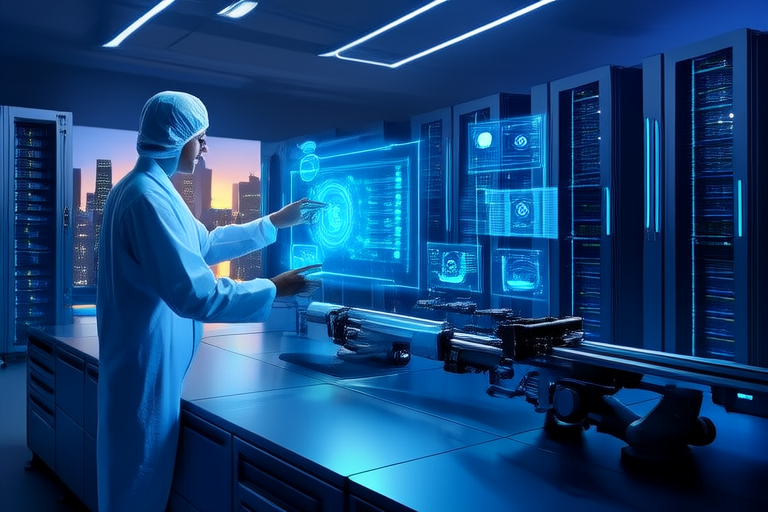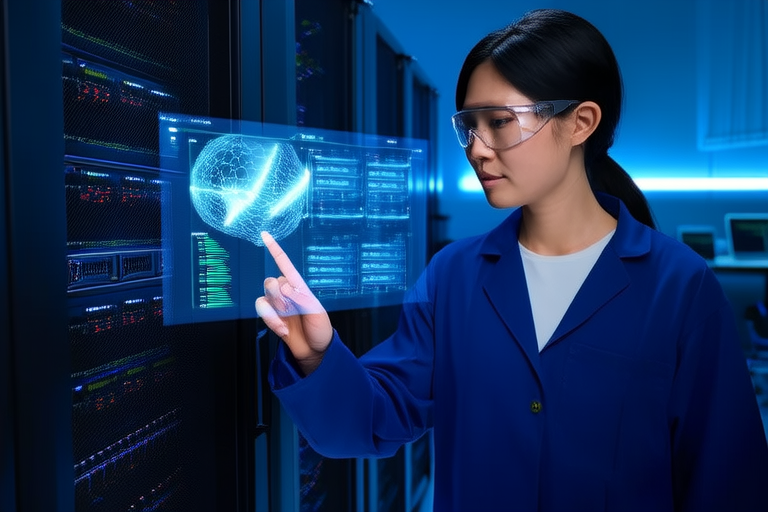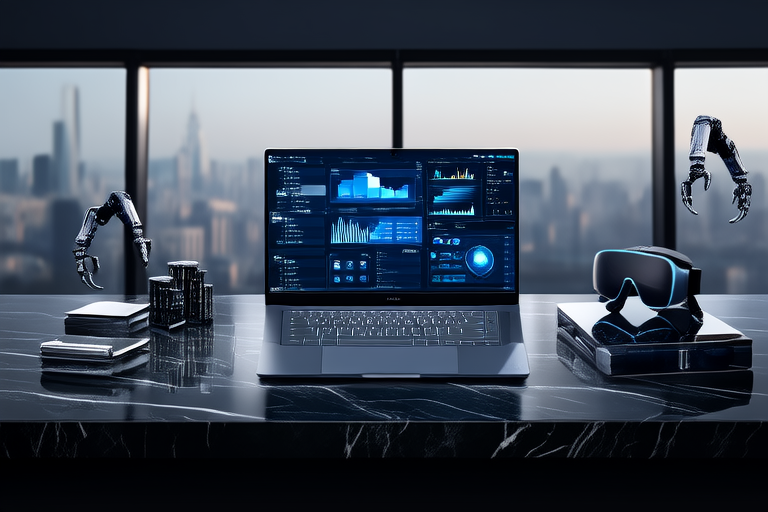Innovating Tomorrow: AI’s Role in Evolving Global Industries
Introduction
Artificial Intelligence (AI) has emerged as a transformative force, reshaping industries and driving innovation across the globe. As AI technology continues to evolve, it is becoming increasingly integral to sectors ranging from healthcare and finance to manufacturing and education. This article aims to explore the specific ways in which AI is revolutionizing key industries, highlighting both current advancements and potential future developments.
Healthcare
The healthcare sector is witnessing significant transformations thanks to AI. AI algorithms can analyze vast amounts of patient data to assist in medical diagnoses, predict outcomes, and develop personalized treatment plans. For instance, AI-driven tools can detect early signs of diseases like cancer, offering patients more effective and timely interventions. In addition, AI is playing a crucial role in drug discovery, reducing the time and cost associated with bringing new treatments to market. Robotic surgery, telemedicine, and other AI-powered innovations are also enhancing patient care and improving operational efficiency. Companies like IBM Watson Health and Google DeepMind are at the forefront of these developments, demonstrating the potential for AI to save lives and improve health outcomes.
Finance
In the financial sector, AI is reshaping services through advanced analytics and automation. Fraud detection systems powered by AI can quickly identify suspicious transactions, helping to protect consumers and financial institutions from cyberattacks. Algorithmic trading, where AI models execute trades based on real-time market data, is also becoming more prevalent, offering faster and more accurate decision-making. Customer service is being enhanced through chatbots and virtual assistants, providing round-the-clock support. Furthermore, AI is aiding in risk management and regulatory compliance, ensuring that financial institutions adhere to strict guidelines while minimizing risks. Notable case studies include JPMorgan Chase’s use of AI to streamline legal document review and Goldman Sachs’ deployment of machine learning algorithms to optimize trading strategies.
Manufacturing
The manufacturing industry is embracing AI to enhance productivity and efficiency. AI is being integrated into supply chain management, enabling better forecasting and inventory control. Predictive maintenance systems use AI to monitor equipment performance, predicting when maintenance is needed before failures occur. This reduces downtime and extends the lifespan of machinery. Quality control processes are also being automated, with AI algorithms analyzing production lines to detect defects in real time. The concept of Industry 4.0, which emphasizes the fusion of digital technologies with traditional manufacturing, is driving this transformation. Robotics, automation, and the Internet of Things (IoT) are key components of this evolution, allowing manufacturers to create smarter, more connected factories. Companies like Siemens and General Electric are pioneering these advancements, setting new standards for manufacturing excellence.
Education
AI is revolutionizing education by personalizing learning experiences and automating administrative tasks. Adaptive learning technologies adjust content based on individual student performance, ensuring that each learner receives the most appropriate instruction. Virtual tutors powered by AI offer students personalized guidance, answering questions and providing feedback in real time. These tools help educators focus on teaching rather than administrative duties, freeing up time for more meaningful interactions. However, there are challenges to consider, such as ensuring equitable access to AI-powered resources and addressing privacy concerns. Despite these hurdles, the potential benefits of AI in education are immense, offering the promise of a more inclusive and effective learning environment.
Transportation
The transportation industry is undergoing a radical transformation driven by AI. Autonomous vehicles, powered by sophisticated AI algorithms, are set to revolutionize how we move people and goods. Traffic management systems are becoming smarter, optimizing routes and reducing congestion. Logistics operations are also being streamlined, with AI-driven solutions enhancing supply chain efficiency. However, ethical considerations and safety measures are paramount. Ensuring that autonomous vehicles operate safely and responsibly is a critical challenge. Breakthroughs in sensor technology, machine learning, and data analytics are paving the way for safer, more efficient transportation systems. Companies like Waymo and Tesla are leading the charge in this exciting field, pushing the boundaries of what is possible.
Conclusion
AI is undeniably shaping the future of global industries, offering unprecedented opportunities for innovation and growth. From improving healthcare outcomes and enhancing financial services to optimizing manufacturing processes and transforming education, AI’s impact is profound and far-reaching. As these technologies continue to evolve, they will likely drive even greater advancements, reshaping entire industries and contributing to societal and economic progress. The future of AI holds the potential to address some of the world’s most pressing challenges, from climate change to healthcare disparities. By embracing AI responsibly, we can harness its power to build a brighter, more innovative tomorrow.




